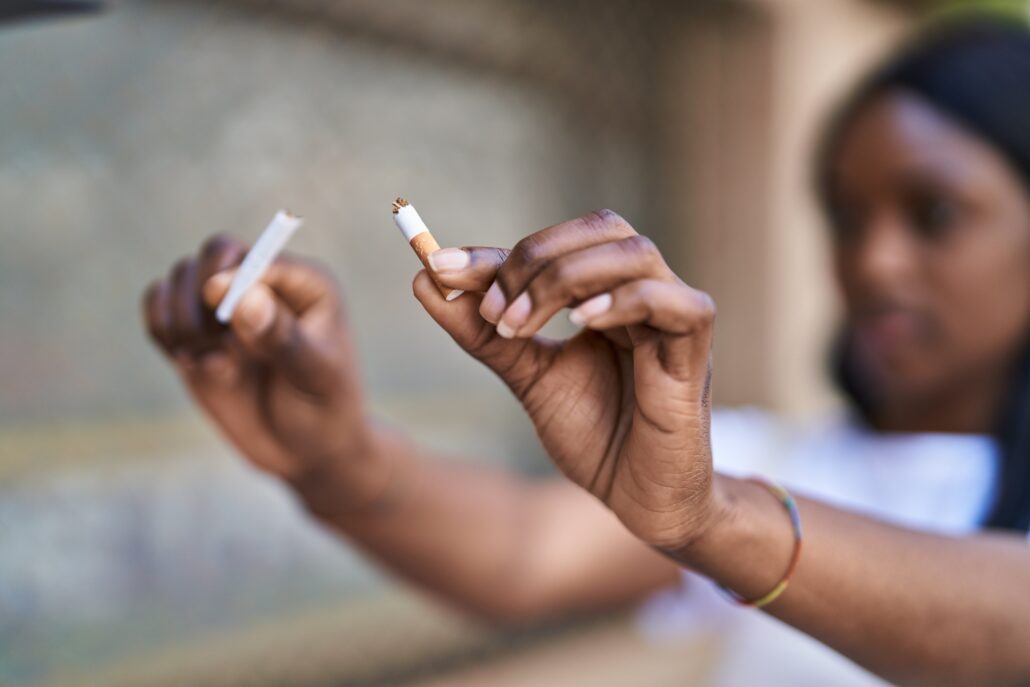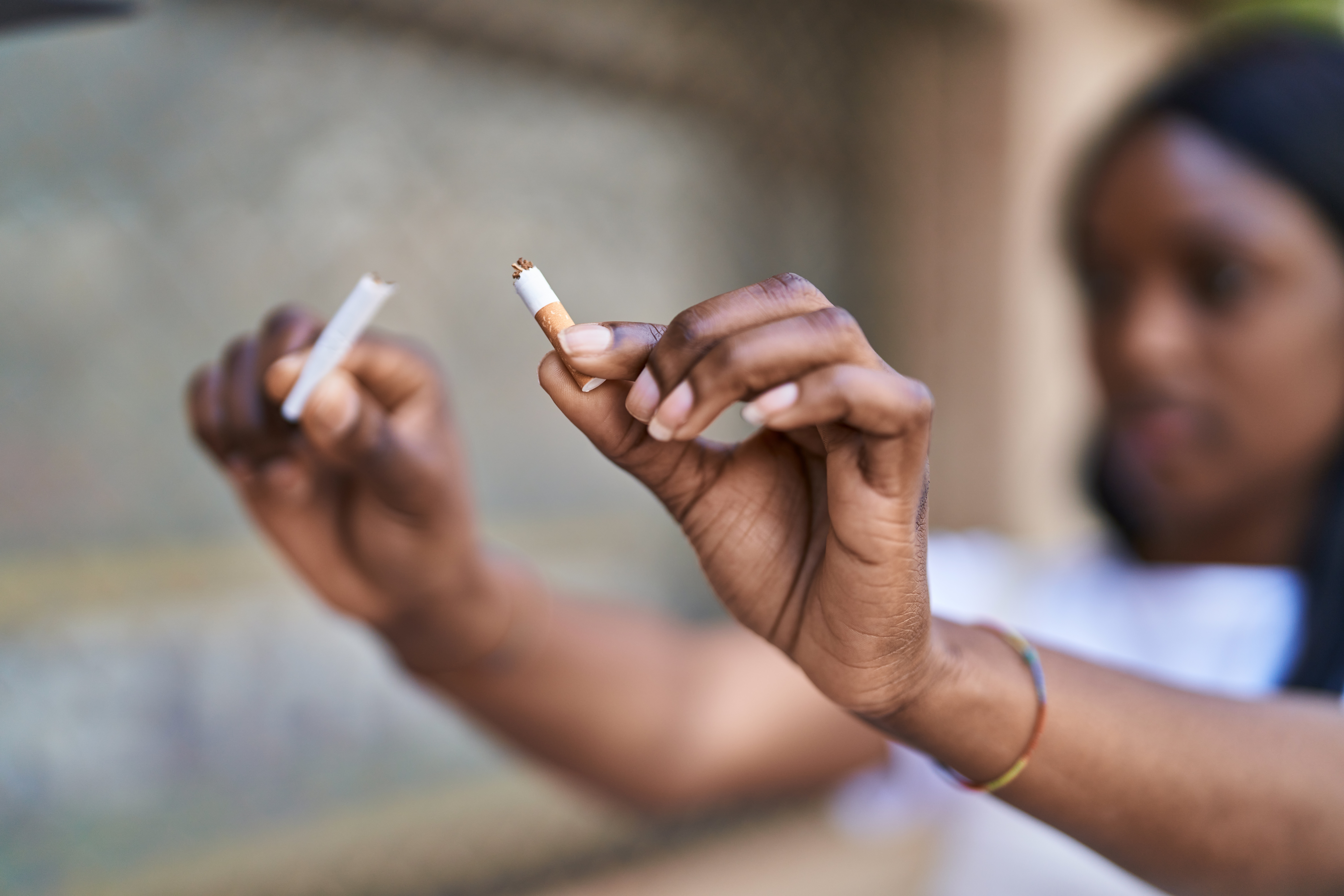Smoking Cessation Research Study
Researchers at The University of Arizona are recruiting volunteers who want to stop smoking. Participants will work with a trained quit coach over the phone using techniques that have helped others stop smoking for good.

Fast Facts

Smoked (Mainly Cigarettes) Daily For Past 30 Days

Ages 18+

Compensation Provided

Conducted In Arizona and West Virginia
Study Background
Researchers at The University of Arizona are evaluating two smoking cessation programs.
The purpose of this research study is to compare two programs for helping people to stop smoking. One program uses proven behavior change techniques and the other uses behavior change techniques plus Guided Imagery (a type of visualization) to help individuals stop smoking.
You will be expected to: attend 6 60-minute sessions, 1 per week for 6 weeks, and practice new coping skills every day between sessions.
You will receive $50 total for completing 3 study surveys. Both programs include 6 coaching phone calls and 4 weeks of nicotine patches or lozenges at no cost. You could be chosen to participate in other project activities for an additional $50.
Help us find potential new approaches for helping people like you to become smoke free. Join our compensated study today!

Study Background
Researchers at The University of Arizona are evaluating two smoking cessation programs.

The purpose of this research study is to compare two programs for helping people to stop smoking. One program uses proven behavior change techniques and the other uses behavior change techniques plus Guided Imagery (a type of visualization) to help individuals stop smoking.
You will be expected to: attend 6 60-minute sessions, 1 per week for 6 weeks, and practice new coping skills every day between sessions.
You will receive $50 total for completing 3 study surveys. Both programs include 6 coaching phone calls and 4 weeks of nicotine patches or lozenges at no cost. You could be chosen to participate in other project activities for an additional $50.
Help us find potential new approaches for helping people like you to become smoke free. Join our compensated study today!

Additional Information
One program uses proven cognitive-behavioral change techniques alone (including at-home practice), and the other uses cognitive-behavioral techniques plus guided imagery, a mind-body technique similar to visualization (also including at-home practice).
You may qualify for this study if you meet the following criteria:
- Smoked daily in the last 30 days
- Willing to attend six 60-minute phone sessions, one per week for six weeks
- Cigarettes are primary tobacco source
- Speak English
- Are 18 years or older
- Have a smartphone with internet access
- Willing to receive coaching over the phone
- Live in Arizona or West Virginia
Once enrolled, you will be randomly assigned into one of two program (behavior change or guided imagery). Both programs include 6 phone coaching sessions and 4 weeks of nicotine patches/lozenges.
You will be expected to: attend 6 60-minute sessions, 1 per week for 6 weeks, and practice new coping skills every day between sessions.
You will receive $50 for completing all study surveys and an additional $50 if you are selected for and complete biochemical verification.
The only cost for you to participate in this study is your time.

An Institutional Review Board responsible for human subjects research at The University of Arizona reviewed this research project and found it to be acceptable, according to applicable state and federal regulations and University policies designed to protect the rights and welfare of participants in research.

An Institutional Review Board responsible for human subjects research at The University of Arizona reviewed this research project and found it to be acceptable, according to applicable state and federal regulations and University policies designed to protect the rights and welfare of participants in research.
